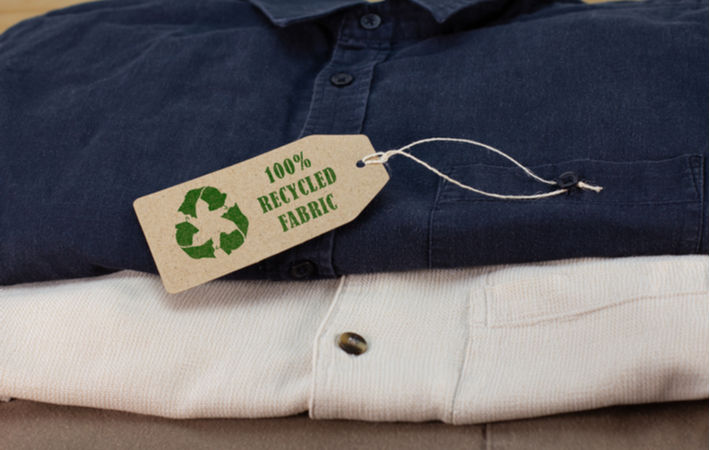Interviews
Australians value ethical fashion but struggle to take action: Report
29 Jul '21
3 min read

Pic: Shutterstock
Australian consumers feel ethical purchasing is important, but are failing to follow through on their own beliefs, according to the new Australian Ethical Consumer Report, which found 87 per cent want to change their fashion consumption habits to consume more ethically, but just 46 per cent indicate they regularly purchase from ethical or sustainable brands.
The report was released recently by Christian Aid and development organisation Baptist World Aid Australia in collaboration with social research company McCrindle.
Most Australians feel a sense of global responsibility and want to change their consumption habits, but cite awareness of ethical brands and expense as the two greatest barriers to doing so, the study found.
Three in five Australians (61 per cent) strongly/somewhat agree that Australia has a responsibility to support regional and global neighbours to overcome poverty and disasters. More than half of Australians (56 per cent) believe it is important for people to consider how their purchases impact people overseas.
Eighty seven per cent want to change their clothing and fashion consumption habits to consume more ethically in the future.
Australians are largely driven by value when making purchases. Good quality (80 per cent) coupled with low price (71 per cent) are most likely to influence Australians’ purchasing decisions. Taste can also play a significant role, with three in five (61 per cent) suggesting suitability to their taste influences their decisions.
Australians are less likely to be swept up in trends, with only 12 per cent suggesting keeping up with trends influences their decision and even less (8 per cent) being influenced by fitting in with those around them, the study found.
Younger Australians are, however, more likely to be influenced by keeping up with trends compared to their older counterparts (29 per cent Gen Z, 16 per cent Gen Y cf. 9 per cent Gen X, 2 per cent Baby Boomers, 2 per cent Builders).
Females and males can often be influenced by different factors when making a purchase. Males are more likely than females to be influenced by practicality (53 per cent cf. 48 per cent) and locally sourced/made products (42 per cent cf. 36 per cent), whereas females are more influenced by price (74 per cent cf. 69 per cent) and sustainable brands (31 per cent cf. 24 per cent).
“This report reveals we have a long way to go when it comes to ethical consumption and understanding the impacts that our purchases have on the environment and people around the world,” said Peter Keegan, director of advocacy at Baptist World Aid, in a press release.
‘There’s a dissonance between who we want to be, and what we’re doing to get there. Almost three in four Australians believe ethical fashion and related issues of human rights and environmental sustainability are important, with three in five consumers becoming more aware of the impacts of their purchases over the past three years,’ he said.
“But a large portion of consumers are still struggling to take those next steps towards purchasing ethically. Tools like the Ethical Fashion Report are created to bridge this gap and help consumers to match intention and action,” he added.
The report was released recently by Christian Aid and development organisation Baptist World Aid Australia in collaboration with social research company McCrindle.
Most Australians feel a sense of global responsibility and want to change their consumption habits, but cite awareness of ethical brands and expense as the two greatest barriers to doing so, the study found.
Three in five Australians (61 per cent) strongly/somewhat agree that Australia has a responsibility to support regional and global neighbours to overcome poverty and disasters. More than half of Australians (56 per cent) believe it is important for people to consider how their purchases impact people overseas.
Eighty seven per cent want to change their clothing and fashion consumption habits to consume more ethically in the future.
Australians are largely driven by value when making purchases. Good quality (80 per cent) coupled with low price (71 per cent) are most likely to influence Australians’ purchasing decisions. Taste can also play a significant role, with three in five (61 per cent) suggesting suitability to their taste influences their decisions.
Australians are less likely to be swept up in trends, with only 12 per cent suggesting keeping up with trends influences their decision and even less (8 per cent) being influenced by fitting in with those around them, the study found.
Younger Australians are, however, more likely to be influenced by keeping up with trends compared to their older counterparts (29 per cent Gen Z, 16 per cent Gen Y cf. 9 per cent Gen X, 2 per cent Baby Boomers, 2 per cent Builders).
Females and males can often be influenced by different factors when making a purchase. Males are more likely than females to be influenced by practicality (53 per cent cf. 48 per cent) and locally sourced/made products (42 per cent cf. 36 per cent), whereas females are more influenced by price (74 per cent cf. 69 per cent) and sustainable brands (31 per cent cf. 24 per cent).
“This report reveals we have a long way to go when it comes to ethical consumption and understanding the impacts that our purchases have on the environment and people around the world,” said Peter Keegan, director of advocacy at Baptist World Aid, in a press release.
‘There’s a dissonance between who we want to be, and what we’re doing to get there. Almost three in four Australians believe ethical fashion and related issues of human rights and environmental sustainability are important, with three in five consumers becoming more aware of the impacts of their purchases over the past three years,’ he said.
“But a large portion of consumers are still struggling to take those next steps towards purchasing ethically. Tools like the Ethical Fashion Report are created to bridge this gap and help consumers to match intention and action,” he added.
Fibre2Fashion News Desk (DS)
Popular News
Leave your Comments
Editor’s Pick
Therese Premler-Andersson
Textile Machinery Association of Sweden (TMAS)
Salvatore Piccione
Label - Salvatore Piccione
































-Ltd..jpg?tr=w-120,h-60,c-at_max,cm-pad_resize,bg-ffffff)





.jpg?tr=w-120,h-60,c-at_max,cm-pad_resize,bg-ffffff)
.jpg?tr=w-120,h-60,c-at_max,cm-pad_resize,bg-ffffff)






